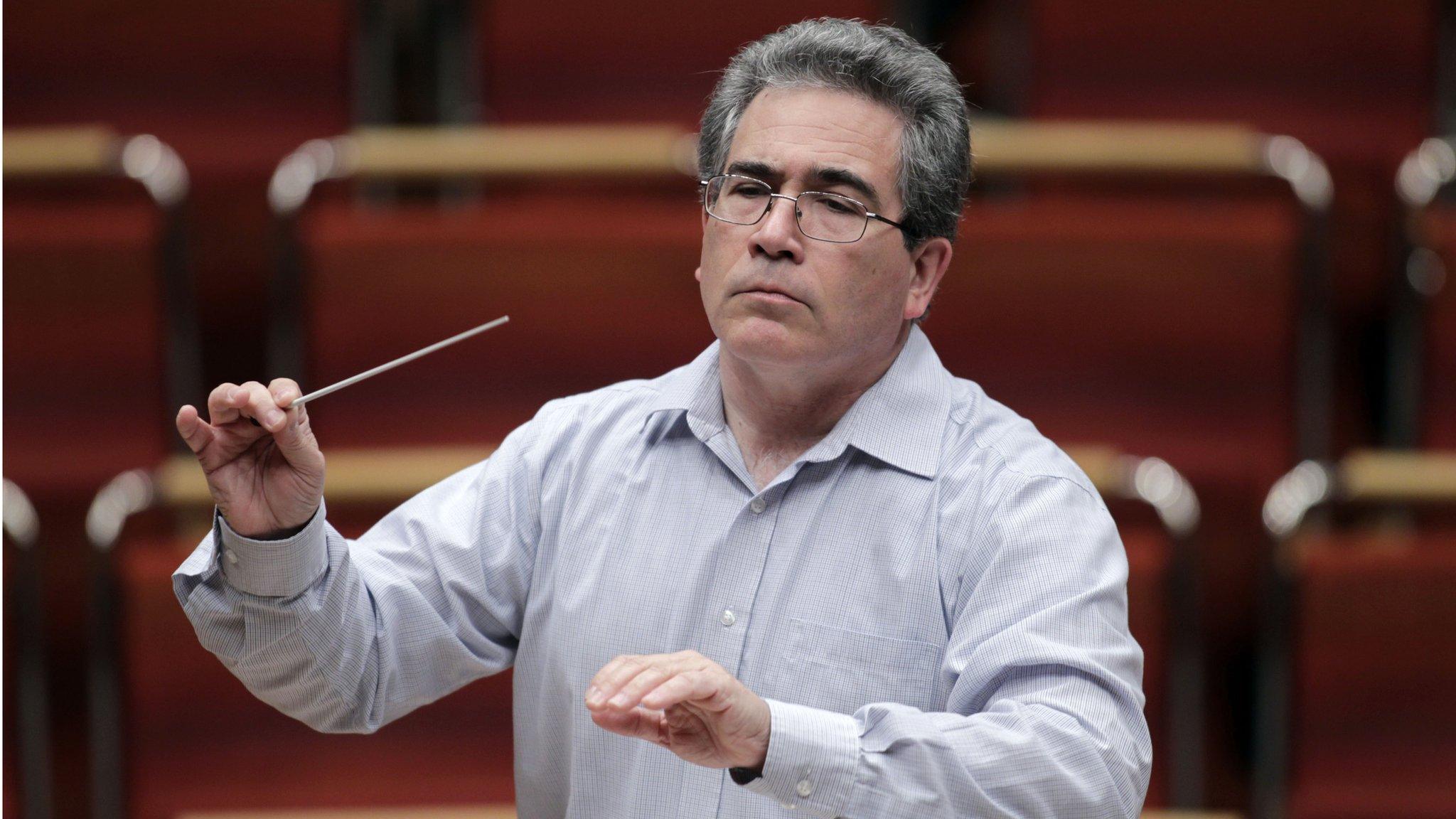Iolo Morganwg: Plaque unveiled to Eisteddfod Gorsedd creator
- Published
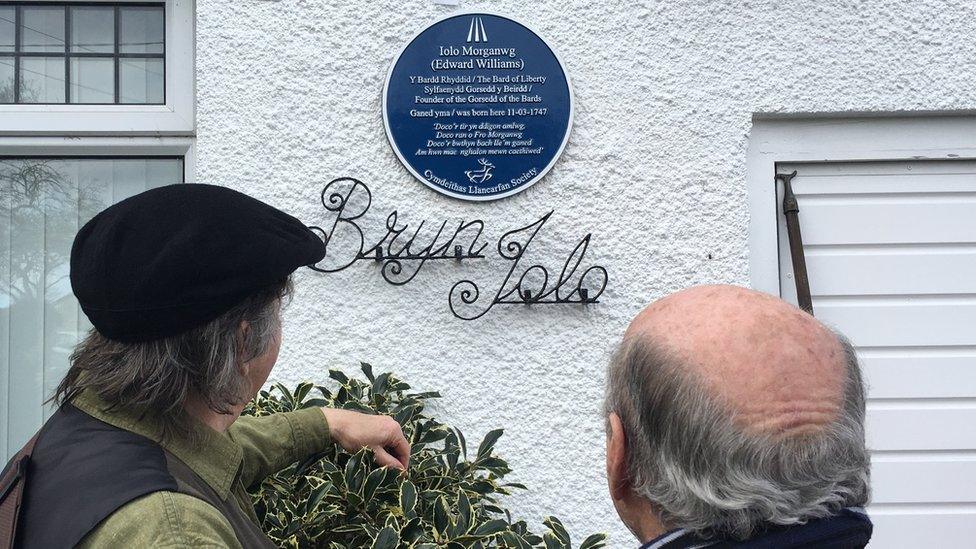
A plaque to Iolo Morganwg has been unveiled at the house where he was born
Who was Iolo Morganwg, the "visionary" who helped shape modern Wales?
Born in 1747, he invented the Gorsedd of the Bards, the ceremonial gathering of druids at the National Eisteddfod.
He was also a collector of medieval Welsh literature - and now known more widely for inventions which sometimes strayed into acts of forgery.
Morganwg has now been honoured with a blue plaque, unveiled at the house where he was born at Pennon, in the Vale of Glamorgan.
The writer and former archdruid T James Jones said he deserved credit for realising Wales needed its own institutions such as the Senedd, and deserved a statue in his honour in Cardiff Bay.
"He was a remarkable visionary. He saw a Wales which we are beginning to see today, but in his lifetime his contemporaries did not really have the same vision," Mr Jones said.
"Above everybody else, he is the one who dreamed of this Senedd, which will eventually become a parliament in a short while."

Iolo Morganwg has sometimes been dismissed by academics as a fraudster
Born Edward Williams in Pennon in the Vale of Glamorgan in 1747, he gave himself the bardic name Iolo Morganwg.
As well as inventing the Gorsedd of the Bards, he also fabricated poems and manuscripts, and has sometimes been dismissed by academics as a fraudster.
But the reputation of Morganwg, who died in 1826, has been revived by more recent studies of his work.
He is credited with predicting Wales's need for cultural and political institutions such as the National Library of Wales and the National Museum, to ensure the survival of Welsh identity and language through the industrial revolution.

In 2019 T James Jones won the Eisteddfod chair - a Welsh-language literature prize - for a poem about Iolo Morganwg
The Gorsedd, presided over by the archdruid, continues to this day as a body of people honoured for achievements in Welsh life, with all of its proceedings conducted in Welsh.
They meet annually at the National Eisteddfod, although the Gorsedd is a separate institution to the cultural event.
Mr Jones, archdruid from 2009 to 2013, said "The irony is that he established the Gorsedd on Primrose Hill in London, but he did this in order to publicise the fact to people in London that there is a Welsh language."
While Morganwg created the Gorsedd at the end of the 18th century, its symbolism is rooted in his idea of ancient Britons and its druids.
"Wales, for him, was the old Britain, the original Britain, not the 'Great Britain' he opposed so vehemently," said Mr Jones.
"Although he was such an ardent supporter of Wales and things Welsh, he was also an internationalist.
"He came under the influence of the French Revolution, and he fought against slavery. His brothers were in Jamaica making a great fortune out of slavery, and when they offered to help him out of his poverty, he refused. That was the principle that belonged to Iolo Morganwg.
"He was asthmatic, he used a lot of laudanum [derived from opium], and yet he lived to the ripe old age of 79 at that time."
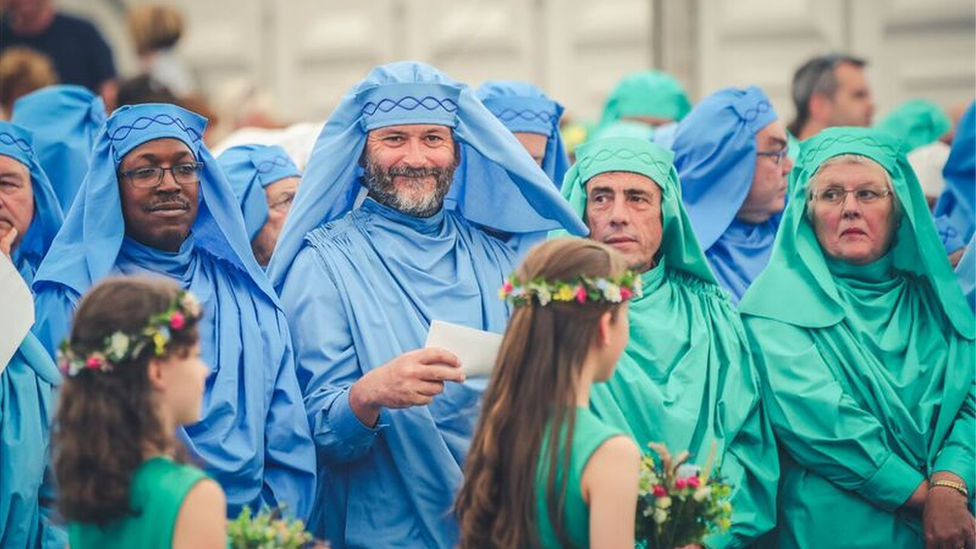
People are invited to join the Gorsedd of Bards for their contribution to Welsh life
Morganwg also passed off his own work as those of the 14th Century Welsh poet Dafydd ap Gwilym, and they were successfully included in a compilation of his writing.
Mr Jones said he did this to enhance the reputation of the county of Glamorgan, because he felt that north Walians demeaned it.
"Of course he was criticised and rejected by many academics for years and years, but [Aberystwyth University] have revived interest in him," he said.
"In fact they have shown that we are talking about a great Welsh man rather than a fabricator."
- Published26 November 2019
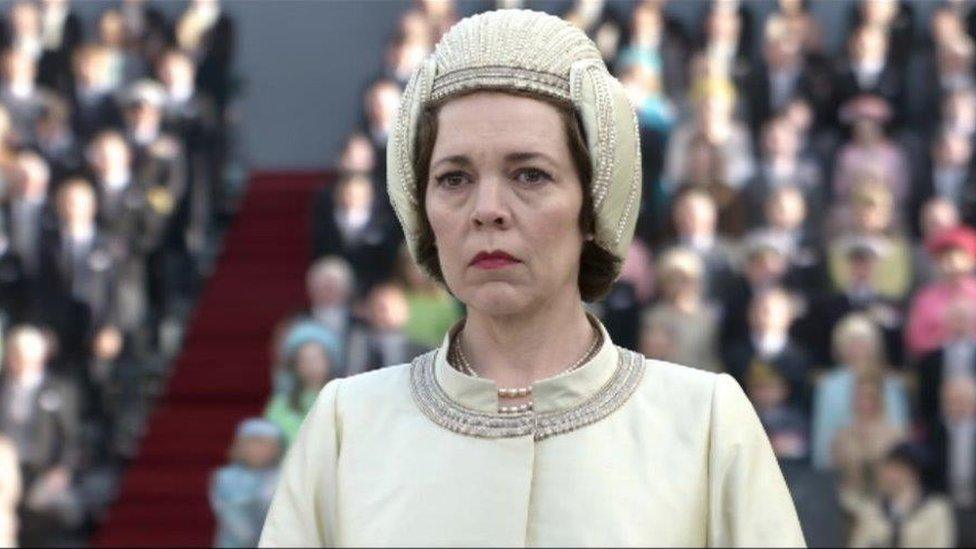
- Published13 August 2019
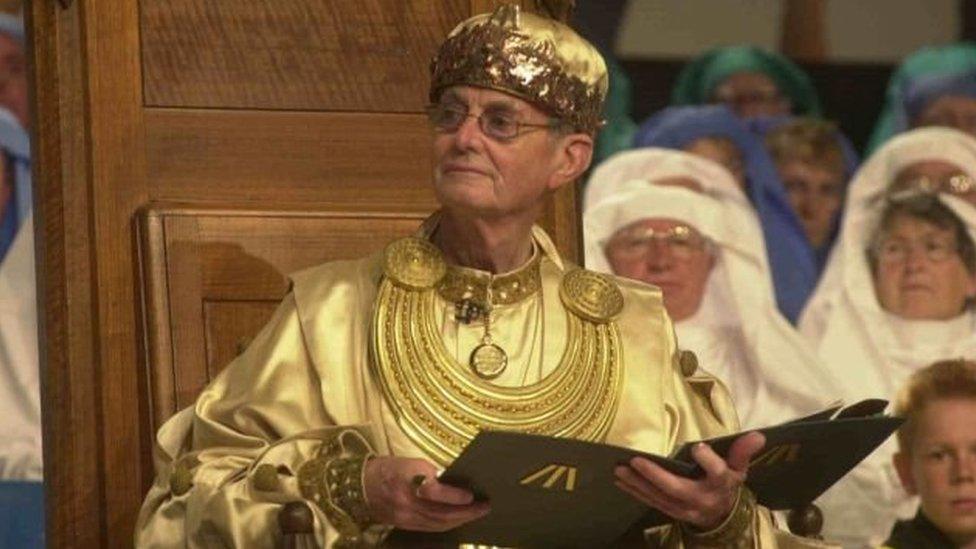
- Published23 February 2020
